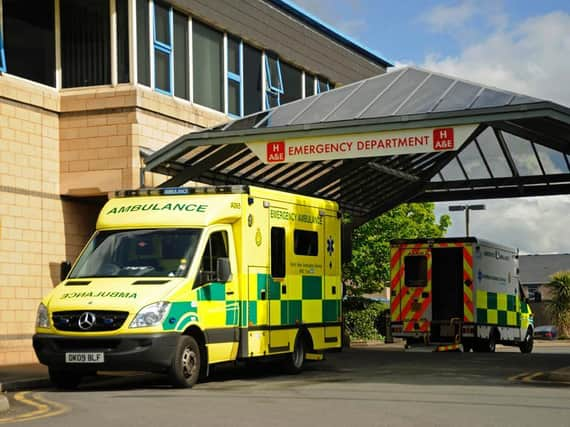Royal Lancaster Infirmary asks for help to reduce pressure on A&E


Following the relaxation of some lockdown restrictions over recent weeks, the Emergency Departments at the Royal Lancaster Infirmary and Furness General Hospital in Barrow are seeing an increase in attendances.
Compared with the same period two years ago (pre-pandemic) there has been a 6.5 per cent increase in people coming into the department.
Advertisement
Hide AdAdvertisement
Hide AdAttendances over the last 30 days are seven per cent higher than forecast for this period. More patients have higher acuity (they are more poorly) with the percentage of attendances admitted two per cent higher than the same period two years ago.
Dr Jeremy Harrison, Clinical lead for Emergency and Urgent Care at the RLI, said: “The support we have received from our local communities during the pandemic has been overwhelming and we remain incredibly grateful. However, we are hoping that they can show us the same level of support by helping us to reduce the pressure on our EDs wherever possible.
“To be clear, our EDs are open and our teams are ready to care for people who need their help. We know that there are patients who absolutely need to be seen by our ED teams but we are also seeing patients who could be treated using a different healthcare service.
"That is why we are asking the public to only attend the ED if they have a life-threatening emergency, such as chest pain, stroke, major trauma, or severe bleeding that cannot be stopped.”
Advertisement
Hide AdAdvertisement
Hide AdED teams are equipped and trained to deal with life-threatening emergencies, such as loss of consciousness, acute confused state and fits that are not stopping, chest pain, breathing difficulties, severe bleeding that cannot be stopped, severe allergic reactions, severe burns or scalds, stroke, or major trauma such as a road traffic accident.
Dr Harrison added: “We appreciate that accessing healthcare services can seem confusing - especially if you do not know which service is best for your situation - but that doesn’t mean that everyone should attend the ED.
"If you need urgent medical help and don’t know which service is best for you, NHS 111 will help 24 hours a day, seven days a week. They will ask questions about your symptoms so you get the help you need.
“If you need to go to the ED, NHS 111 will confirm that with you and you can be confident that you will be seen as quickly as your clinical need requires. You may still have to wait, especially if the team are caring for other patients who may have unexpected life-threatening emergencies, but our team will be ready to care for you.
Advertisement
Hide AdAdvertisement
Hide Ad“It is incredibly important to make sure that our ED teams are left to see and treat patients who really need urgent life-saving care, and we hope that our local communities can support that by only attending an ED if they need to.”
NHS111 can be accessed online at 111.nhs.uk or by calling 111, 24 hours a day, seven days a week.